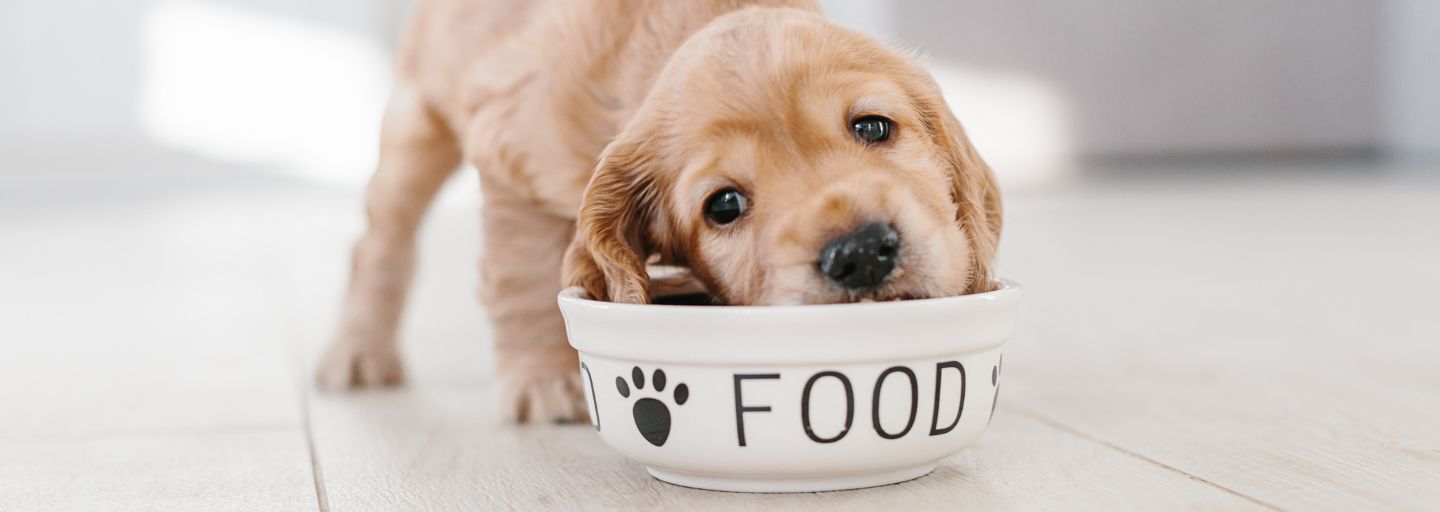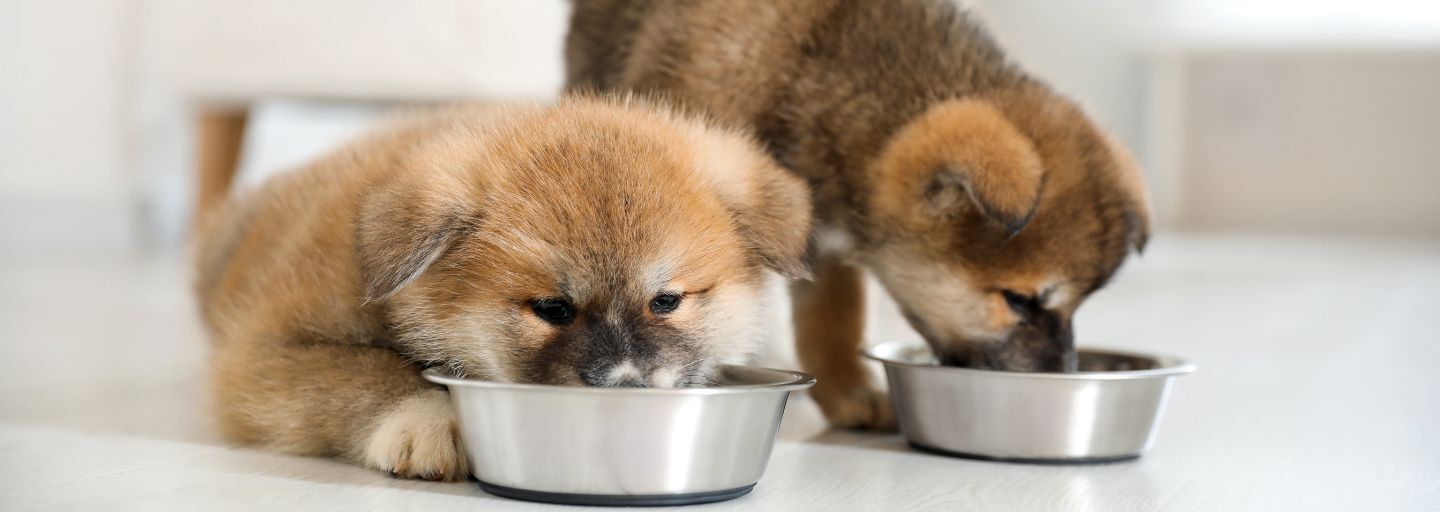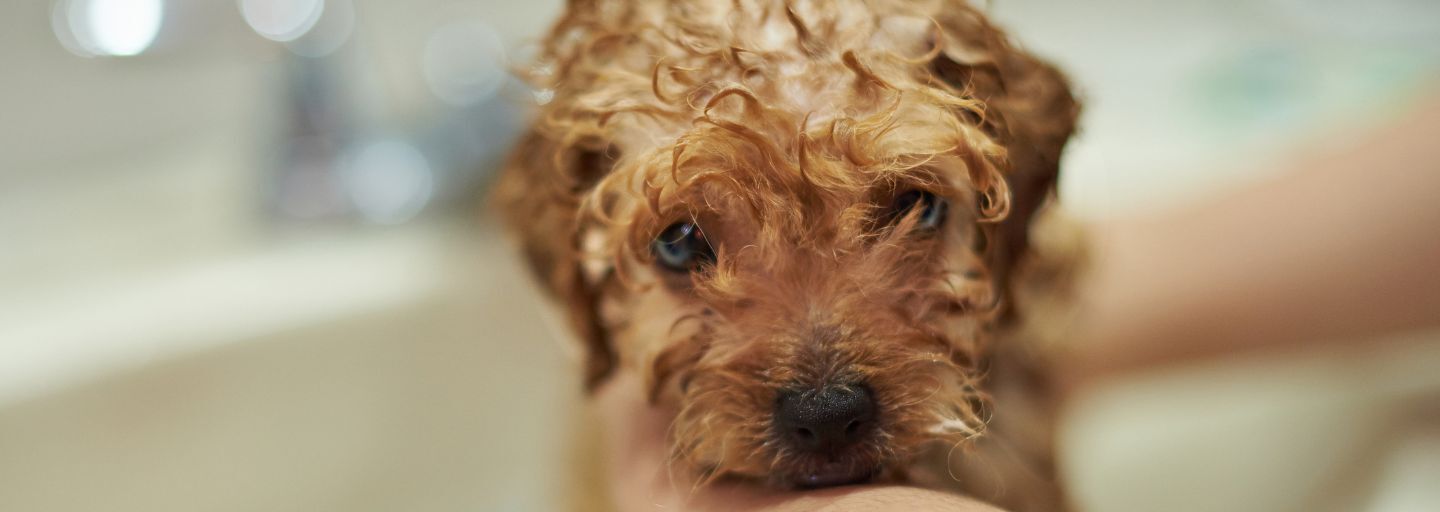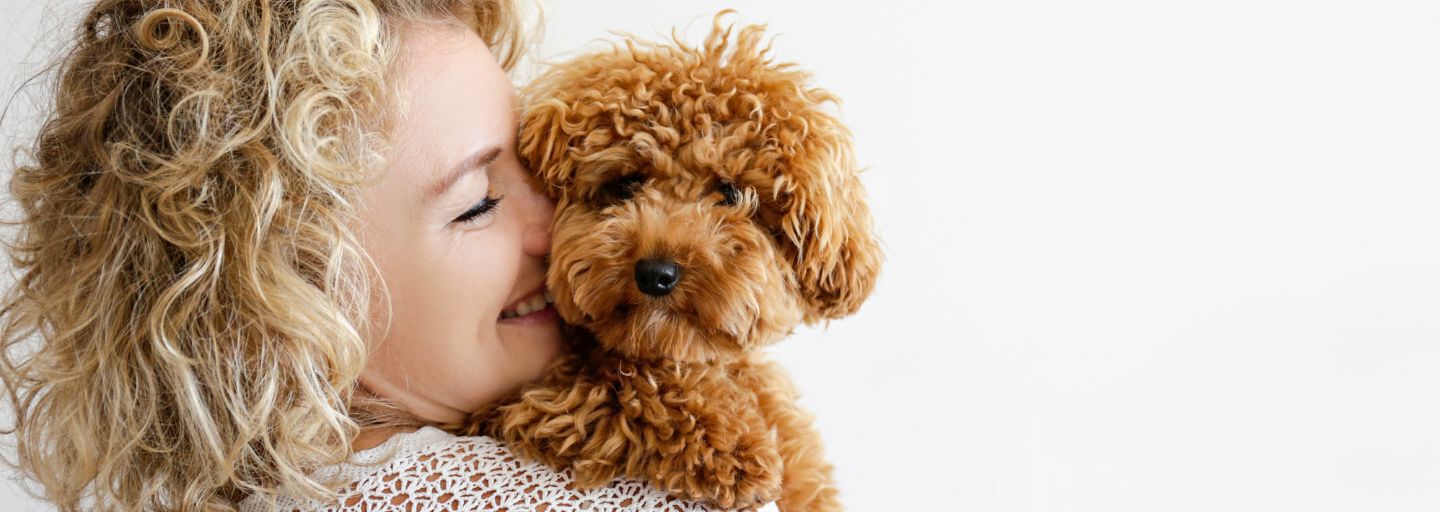Getting a new puppy can be an exciting but sometimes stressful time, especially when it comes to how much to feed, how frequently, and when is the best time. Here are some tips to help you take the stress and guesswork out of feeding your puppy and set them up as good eaters well into their adulthood.
The most important thing to remember is that puppies have very small stomachs, so they benefit from being fed small meals frequently throughout the day. As your puppy gets older and their growth plateaus, you can decrease the feeding intervals to just once or twice a day, whichever works best for you and your puppy.
How frequently should I feed my puppy?
When you first get your puppy at around eight weeks of age, it is recommended to give them three scheduled feeds a day. Once your puppy reaches six - seven months of age, switch to two feedings, and maintain this through to maturity. The puppy should move to adult food when you see they've finished growing. Usually, that will be around their first birthday, but if you have a larger breed such as a Golden Retriever, German Shepherd, Labrador, or Rottweiler, they should be fed a formulation specifically designed for large breeds until they are two years old.
How much should I feed?
It is also best to refer to the puppy feeding recommendations on the package. Remember, these instructions are a "rule of thumb" or a starting point, as the actual feeding amount will depend upon the puppy's age, activity, environment, and body metabolism. Start with the feeding instructions on the package. After feeding for a period of time, observe the pet’s body condition and, if necessary, adjust the amount accordingly. If you are unsure of how much to feed, we recommend having a chat with your vet as they will be able to recommend how much is appropriate for your puppy's age, weight, and energy level.
Monitoring your puppy's body condition to prevent them from becoming overweight is important. Calories from protein, fat, and carbohydrates in a puppy's diet provide energy for the active puppy. Calories not utilized for energy generally become deposited as fat.
What should I feed my puppy?
The first year of life is critical in your puppy's development. During this time, your puppy needs unsurpassed nutrition to strengthen their bones and teeth, properly develop their body functions, and promote clear eyes and a healthy, shiny coat. At certain times during growth and development, a puppy requires up to twice the amount of some nutrients and up to three times the calories per kilogram of body weight compared to that of an adult dog. This tapers off as they reach maturity. For this reason, it is very important that you feed a complete and balanced puppy formulation. Once your puppy reaches 1 year of age (up to two for large and giant breed dogs), slowly transition to adult formulations.
Settling tummies for the stress of coming home
When you first bring your puppy home, it can be very stressful for them and may cause gastrointestinal upset. To keep things as stress-free as possible, find out what your puppy was being fed before bringing them home. By keeping this consistent, it may avoid further tummy upsets. However, if you do decide to change your puppy's food at any time, ensure you do a slow and gradual transition over at least 7-10 days. Start by mixing a small amount of the new food with their present food. Over a period of seven days or so, gradually increase the amount of new food in their bowl and decrease the old food.
Tidbit: Watch out!
Many treats and human foods are not nutritionally complete and balanced for puppies and dogs, and they are usually high in calories. It is recommended that you choose a commercial dry food, as extensive research has gone into making them 100% nutritionally balanced to provide all of your dog's dietary needs for optimal health.



